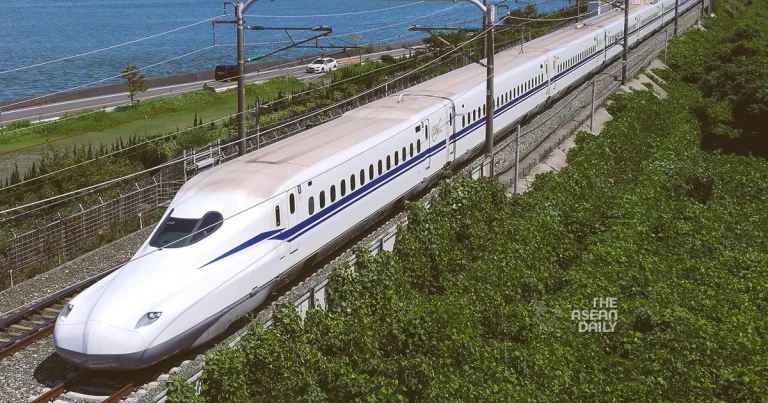11-1-2024 (TOKYO) Japanese companies, including East Japan Railway Co, have decided to withdraw from participating in the high-speed rail project connecting Kuala Lumpur and Singapore, according to government and company sources on Thursday.
The companies had initially planned to leverage Japan’s shinkansen bullet train system for the project but have deemed it too risky without financial support from the Malaysian government, sources from both the Japanese and Malaysian governments stated.
The decision creates an opportunity for Chinese companies to strengthen their influence in East Asian infrastructure development, especially after successfully completing a high-speed railway in Indonesia in 2023. China has also established a line through Laos, with ongoing efforts to connect it from Thailand.
The deadline for bid submissions for the KL-Singapore line is Monday. The Malaysian government initiated the bidding process in July 2023, aiming for private financing rather than relying on government spending or extending debt guarantees for the estimated 100 billion ringgit ($21 billion) project.
While Japanese firms withdraw, several local companies plan to collaborate with Chinese and European firms to submit bids, according to sources. The Malaysian government intends to shortlist candidates within a few months and initiate negotiations with the Singaporean government later this year.
The project, initially agreed upon by the Malaysian and Singaporean governments in 2013, aimed to construct a 350-kilometre-long high-speed rail link, reducing travel time between Kuala Lumpur and Singapore to 90 minutes from over four hours by car.
Japanese entities, including East Japan Railway and Sumitomo Corp, had expressed interest in joining the project. In 2015, the then Japanese transport minister, Keiichi Ishii, presented the shinkansen system to Malaysian officials during a visit to Kuala Lumpur.
However, in 2021, the then Malaysian Prime Minister Muhyiddin Yassin cancelled the project due to financial concerns. The current administration of Prime Minister Anwar Ibrahim officially revived the project later on.




